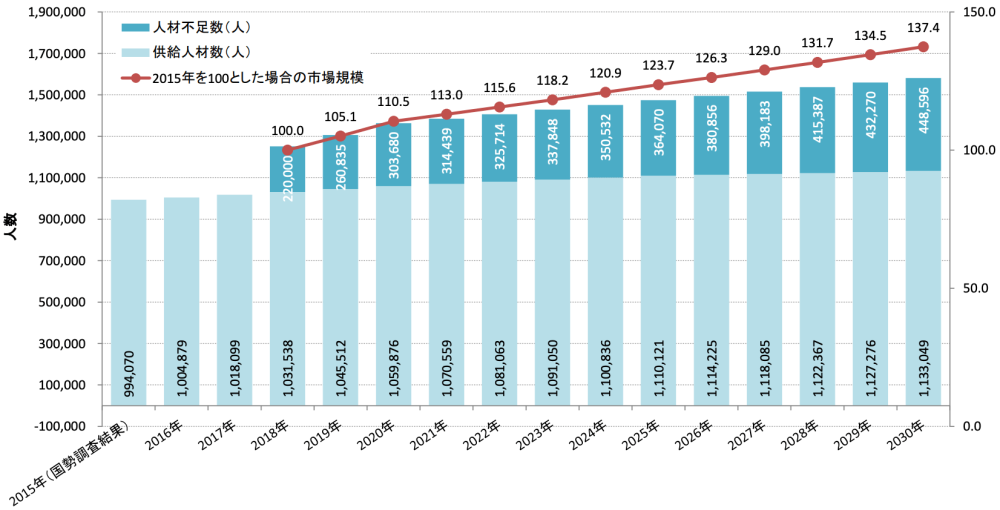Updated September 13, 2024
Moving to Japan as a Software Developer: An Opinionated FAQ
I get a ton of questions about working as a software developer in Japan. And in particular, moving to Japan to work as a software developer.
So here are my opinionated answers to the most common questions.
Quick disclaimer: This guide is for foreigners. That is, people from other countries that want to move to Japan and work as software developers. Do you speak native-level Japanese? Or have a strong familial connection to Japan? Then some of this won't apply.
Also, this is based on my own experience as a guy from the USA who moved to Japan and started my career here after university. Your experience may be different.
Now without further ado, here's my FAQ for software developers in Japan.
In this article: 📝
- Is it possible to move to Japan and work as a software developer?
- How can I get a Japanese work visa as a software developer?
- How hard is it to get a software developer job in Japan?
- Can I work as a developer in Japan without a university degree?
- Can I get a job as a junior developer in Japan from overseas?
- Where can I find a software developer job in Japan?
- Should I teach English as a way to get into Japan?
- Should I study abroad in Japan?
- Should I get my undergrad university degree in Japan?
- Should I major in Japanese in university?
- Should I attend a full-time Japanese language school in Japan?
- Should I move to Japan first or search for jobs from abroad?
- How much can I earn as a software developer in Japan?
- Should I negotiate my salary in Japan?
- Do I need to speak Japanese to find a job in Japan?
- Do I need to pass the JLPT to work in Japan?
- Will I have to work overtime as a software developer in Japan?
- Is software engineering in demand in Japan?
- Is Japan a good place for software engineering?
- Should I work in Tokyo, or a different area in Japan?
- Can you live in Japan and work remotely for an overseas employer?
Is it possible to move to Japan and work as a software developer?
First things first...
Yes. It’s possible to get a job as a software developer in Japan from overseas. But you'll need two things.
The first is an offer from a company in Japan. Or a company that doesn't have a presence in Japan, but works with an "EOR" company to help them hire in Japan.
The second thing you'll need is a Japanese work visa. This is a more complex topic, so see this question below for more details on getting a visa.
How can I get a Japanese work visa as a software developer?
I have a full visa guide here, but essentially you need one of the following to qualify:
1. A 4-year university degree
2. 10 years of relevant work experience
3. Residence in a country with a work holiday visa agreement with Japan
4. A certificate of having passed a Japan government-approved IT exam such as the ITPEC exam
5. 1+ year of experience in STEM or humanities overseas at a company with a Japan office that's willing to sponsor you for an "intra-company transferee" visa
For more information on intra-company transfer visas, please see my guide Japan's Intra-Company Transferee Visa: The Ultimate Guide.
If you have one of the above and a company willing to sponsor you, then you should be eligible for a visa. If you don't, you probably aren't eligible for a work visa.
There are a few more edge cases that can help you qualify (like starting a company in Japan) though. So I recommend checking out our full visa guide for more info.

How hard is it to get a software developer job in Japan?
It depends on a few factors. Here are the main ones:
1. Your Japanese ability
2. Your location
3. Your technical skills / relevant work experience
If you (1) speak business level Japanese, (2) live in Japan already, and (3) have 5 years of relevant software engineering experience? It will be pretty easy to find a developer job in Japan.
If you (1) don't speak any Japanese, (2) live across the earth from Japan, and (3) don't have any work experience yet? It will be extremely difficult to find a developer job in Japan. Especially the type of job that we recommend on Japan Dev ("modern", Silicon Valley-style jobs).
So if you're in the second group, I recommend working on those three things. Study some Japanese. Get a couple of years of work experience (or at least some substantial side projects) under your belt. Come to Japan (even just as a tourist) and start meeting people. Learn about the tech scene in Japan.
Of course, a lot of people are somewhere in the middle. And if that's the case, there are things you can do to improve your chances. One of those is networking with people in Japan, whether online or in-person. Coming to Japan and attending meetups helps (Tokyo, Fukuoka, Kansai). You should also improve your resume — this will improve your odds of getting a response.
I’d also recommend brushing up on your interview skills. Interviewing is a skill, and a bit of practice goes a long way.
Can I work as a developer in Japan without a university degree?
Yes, it’s possible to get a job as a software developer in Japan without a university degree.
Usually people talk about university degrees in the context of getting a visa. Not because companies require it. Getting a 4-year degree is one way to become eligible for a Japanese work visa, but there are other ways.
As long as you fulfill the visa conditions, modern companies (i.e the ones we list on Japan Dev) usually won’t reject you because you don’t have a degree. It’s just one data point they’ll consider along with your technical skills, work experience and Japanese ability.
Can I use an associate’s degree or partial bachelor’s degree to fulfill the visa university degree requirement?
Possibly, but I wouldn't bet on it.
Every situation is different. And some sponsoring companies might hold more sway with immigration than others. But in general, you can't use a partial bachelor's degree or associate's degree to qualify for a Japanese work visa.
You can use 10+ years of relevant work experience or one of Japan's approved IT exams (see our full visa guide for details) instead.
Can I get a job as a junior developer in Japan from overseas?
It's possible, but very hard. And probably not the best path for most people.
Look at it from the company's perspective: Relocating someone to Japan is a big risk. It costs a lot of money to bring you to Japan and get you a visa.
If you don't speak Japanese or aren't used to the culture, you’ll need special accommodations. What if you decide you don't like Japan? The last thing a company wants is to help you relocate, train you, and then have you leave Japan after a few months.
As a junior developer, you'll have a lot of extra costs and worries associated with you from the start. So if you want a company to hire you, you have to offer something really valuable to overcome these costs and make it worth their while.
Something like substantial open source contributions to well-known libraries. Or personal projects with real users. Once you become a senior engineer with a track record of creating value for companies, things get a lot easier.
Having graduated from a top computer science program (like Stanford or CMU) can also help a lot, especially for international companies like Google, Amazon and Indeed.
Again, I won't say it's impossible. But if you try to land a junior developer role in Japan, it will be an uphill battle. And it will require some hustle. Especially if you don't speak the language.
How can I get to Japan if I don't start as a junior developer?
Usually, the best way is to get a few years of development experience in your home country first, then come to Japan later.
Then you can apply for a mid-level or senior developer position in Japan. There are a lot more openings for experienced developers so you'll have a better chance of getting to Japan this way.
Plus, even if you're unsuccessful, you can always continue your career in your home country since you have relevant experience. You'll have options.
You could even try to work at a company with an office in Japan and move here as an internal transfer. This is the ideal case because the company will usually help with your relocation costs and anything else you need to make the transfer as smooth as possible.
Where can I find a software developer job in Japan?
I maintain a curated list of modern dev jobs on japan-dev.com.
When I first moved to Japan to work as a developer in 2013, I had a hard time finding a job. Like, a really hard time.
Japan Dev is my attempt to help people avoid the difficulties I faced and find a better job faster. We only share positions from modern, Silicon Valley-style startups and international companies with offices in Japan.
And we vet every company before posting — in fact we only accept around 10% of companies who request to post jobs.
So I’d start there.
Another option is to reach out to recruiters ("headhunters") in Japan. Just make sure you do your own research. Their commission relies on you finding a job, so some recruiters can get a bit pushy. Don’t let them pressure you into taking a job that’s not the right fit for you.
Some international companies also post jobs on LinkedIn so it’s worth checking out their job board.
Beyond that, I recommend networking. If you can make it to events in Japan, that will make things a lot easier. You can talk to other developers working here and get the latest info about companies that are actively hiring.
Should I teach English as a way to get into Japan?
No, I don't recommend teaching English if your ultimate goal is to work as a software engineer.
Full disclosure: This is the path I took myself, but I think there are better options.
If your goal is to work as a software developer, I recommend getting a developer job ASAP. If you can't make that happen in Japan, you're probably better off doing it somewhere else, rather than taking an English teaching job just to get into Japan.
In my case, I moved to Japan after graduating from university and became an "ALT". I focused all my effort on learning Japanese and made a promise to myself: I would only teach English for one year. Then if I couldn't find a job in Japan, I'd go back to the USA and start my career as a developer there.
Luckily, I was able to find a job at a small startup as a Ruby developer before my visa ran out. But this process was incredibly stressful, and I almost failed to find anything.
The English teaching route can work, but it's unnecessarily difficult. And anecdotally, a lot of people who try it get stuck teaching for longer than they'd planned. If you do decide to take this path, I recommend giving yourself a hard time limit for how long you're willing to teach before switching to an engineering job.
Because it's easy to get trapped.

Should I study abroad in Japan?
Yes. I think studying abroad in Japan can be a great experience.
Japan is so unique and studying abroad is a great way to experience the culture without getting overwhelmed by it. It gives you a taste of what it's like to live here without any commitments.
So as long as it won’t negatively impact your studies (or finances) back home, I recommend studying abroad if you have the option.
Should I get my undergrad university degree in Japan?
In most cases, no, you shouldn't move to Japan to attend university. Even if you're pretty sure you want to work in Japan.
Why not? Two main reasons.
First, university is hard enough in your native language. Trying to learn the Japanese language and navigate a new culture while studying will be tough. It's just not worth it for most people.
And second, the value of a Japanese university degree isn’t well-understood outside Japan. Having one might help if you work in Japan, but most overseas companies won't really know what to make of your degree. This could harm your career prospects and pigeonhole you into working in Japan even if you realize that's not what you want.
It's usually better to educate yourself in your native language first and study abroad in Japan, or branch out after graduation.
Japan's not going anywhere.
Of course, this depends on your home country and individual situation. My opinion is based on my experience coming from the USA. So if you come from a less economically-advantaged country or don’t have access to higher education, then coming to Japan might be a good option.
University in Japan is relatively cheap for a developed country, and it can help you get a job, as long as you’re looking to work at a Japanese company.

Should I do a master's or PhD in Japan?
This is similar to undergrad. So no, I don't recommend doing a master's or PhD program in Japan for most foreigners.
But there are exceptions. If you're chosen for a MEXT scholarship and you're pretty certain you want to work in Japan after graduating, then it might make sense.
Anecdotally, having an advanced degree doesn't increase your value much in the Japanese software engineering market. So I believe the extra years of industry experience you'd gain by skipping grad school are worth more than the graduate degree you'd receive.
Should I major in Japanese in university?
No. At least not if it's your only major. And especially not if you’re looking to work as a software developer.
Why not? For one thing, Japanese isn't very useful outside Japan. Japanese alone isn't even useful in Japan because there are still 100 million people who speak it far better than you.
And that's assuming you even reach a high level. Having a degree in Japanese does not guarantee you will. Plenty of Japanese majors never learn to speak the language fluently (or they forget what they learned after not using it).
Now, maybe you want to pursue a Japanese major because you’re passionate about the language and culture. But there are a few pros and cons to consider before you decide to major in Japanese.
Instead — or in addition — major in something that's useful everywhere. Like computer science if your goal is to work as a software engineer. Then if you decide not to work in Japan, you'll still have marketable skills.
You can always learn Japanese later. In fact, that's what most of the foreign Japanese speakers I know did.

Should I attend a full-time Japanese language school in Japan?
It depends.
There are circumstances where attending a Japanese language school full-time can make sense. If you're 100% certain you want to work in Japan, then it can be a good way to get up to speed quickly. Or if you're trying to break into a more bilingual role later in your career and need to upskill your Japanese fast.
Or if you just know you're the kind of person that needs structured learning (and you're certain you want a career in Japan). I talk more about whether it’s actually worth attending a Japanese language school in this post. I think there are situations when attending a Japanese school might be a good option.
But — like English teaching — I sometimes see people use language schools as a form of escapism. They graduate from university, but they don't want to get a job yet. So they take a year and study Japanese. Or they don't like their job as an English teacher so they take some time off to study Japanese. In my experience, this usually doesn't help much.
Also, you don't need to attend a language school to learn Japanese. I know a lot of people who speak the language fluently without ever attending one (I myself passed the JLPT N1 and worked in fully-Japanese environments for years, without attending a full-time language school).
Most people either have the motivation required to learn Japanese, or they don't. If they do, they're going to learn it regardless of whether they go to a language school or not, and if they don't, they're not going to learn it even if they do attend a language school.
But I do think the full-time language schools prepare you far better for working in Japanese than being a Japanese major at an overseas university.

Should I move to Japan first or search for jobs from abroad?
In most cases you should find a job in Japan from overseas first.
Sometimes people will get a tourist visa (usually for 3 months) and try to search for a job in-person. And this approach has a few benefits: For one thing, it shows you're serious. Plus you can attend interviews in person and attend networking events while you're here.
The problem is you'll be in a rush. You'll be under pressure to find a job before your visa runs out, and that's usually not a recipe for finding an actually good job. This can lead to accepting an offer that you otherwise wouldn't just to stay in the country, and — in the worst case — having a negative experience and deciding to leave Japan. Which would be a shame.
Applying from abroad is also a good filter to make sure you have the skills and experience needed to get a good role in Japan. There are enough foreigner-friendly jobs hiring from overseas that you should be able to get some interest if your profile is attractive to companies hiring in the country.
If you apply to these roles and get zero interest, coming to Japan probably won't help much. It's usually better to improve your skills in your own home country and try again later.

How much can I earn as a software developer in Japan?
It depends.
I wrote a software developer salary guide for Japan that answers this question. It analyzes thousands of data points and includes links to all the best resources on the topic of tech salaries.
But in case you're busy and don't need all the details, here's the TL;DR:
- Junior devs: ¥5-7 million per year (0-2 years of experience)
- Mid-level devs: ¥7-12 million per year (3-5 years of experience)
- Senior devs: ¥8-15 million per year (6+ years of experience)
Now, I realize that not all developer jobs in Japan pay this much. These are the ranges for the jobs I personally recommend. In other words, jobs at international companies and modern Japanese startups.
Outside of these companies, there's another huge cohort of domestic Japanese companies that hire programmers, but don't pay nearly as well. I recommend avoiding these legacy, domestic companies. In fact, salary can be a good way to check which group a company belongs to.
As a general rule, don't take a developer job paying less than ¥4 million per year. That's total, including bonuses. This will help you avoid the dreaded Japanese "black companies" and improve your odds of having a positive experience in Japan.
Should I take a low-ball offer to get to Japan?
No. You should not accept an offer for an engineering position with a low salary (below ¥4M or so) as a way to move to Japan.
Don't get me wrong, I know it can be tempting. There are enough companies in Japan hiring engineers that, if you lower your standards, there's a decent chance you'll find something.
Maybe you find a company willing to pay you ¥2.8M a year. Definitely low, but it's enough to live... So you take the offer (even though the company has a questionable reputation). And you think to yourself, hey, at least I'll be in Japan. I can always find a better company later. Right?
And technically, that's true. But it's also a recipe for disaster. Low paying companies are more likely to have poor work conditions. That means you won't have time to work on side projects. Or to grow your skills outside of work.
These companies can't attract highly-skilled talent so your co-workers usually won't be the highest-caliber developers. They won't have as much to teach you, and you'll have fewer growth opportunities. The skills you learn might be less transferable. You're less likely to be using cutting-edge tech.
All of these factors can lead to a pretty miserable experience. I see a lot of people take low-paying jobs at low-quality companies. They have a negative experience, and then they decide Japan is a terrible place to work. And usually they end up leaving the country. And then they go online and share horror stories about how working in Japan sucks.
I want to stop this cycle. Because I know this can be avoided. There are great tech jobs available in Japan. You just need to be careful and do your research (and use resources like Japan Dev to find the good jobs).
So please, don't take a low-paying job just to get to Japan — it rarely works out.

Should I negotiate my salary in Japan?
Opinions vary on this topic. Here's mine: Yes, you should negotiate your salary.
My first programming job in Tokyo paid ¥3.6 million per year back in 2014. I didn't negotiate the offer, mainly because I was scared and my visa was about to run out. I later learned that my co-workers were pretty much all earning more than me. Oops.
Long story short, I learned my lesson.
I changed jobs 3 more times, and every time, I negotiated my new salary. I got 50-60% raises each time, and in 2021 I was earning over ¥18 million per year. (That's when I opted out of employment entirely.)
Of course, salary negotiation wasn't the only reason I could increase my earnings. I was also gaining experience as a developer that whole time.
But if I'm being honest... I think the increase was mostly thanks to salary negotiation.
Should I disclose my current salary to potential employers?
Again, opinions vary. Again, my advice? No. Don't tell potential employers your current salary.
I mentioned above that I got 50-60% raises each time I switched jobs. I believe this would have been impossible if I'd shared my previous salary with the new employers.
Yes, companies in Japan pretty much always ask your current salary. Yes, refusing to tell them sucks. Yes, they'll keep asking in subsequent interviews even if you successfully refuse to tell them. (I once refused to answer 4 separate times at the same company.)
But (politely) refusing to tell them your salary can increase your lifetime earnings by hundreds of thousands — if not millions — of dollars. So it’s worth it.
I'll write a proper salary negotiation guide one of these days, but until then I agree with >90% of the advice in this blog post from Patrick Mckenzie.
Will a company in Japan find out my previous salary after they hire me?
Usually, yes.
How will they find out this information? From your tax adjustment form (源泉徴収票). When you change jobs in Japan, you'll receive this slip of paper from your previous company. Then you need to submit it to your new company so they know how much tax to deduct from your paychecks.
Technically, there are ways around this. You might be able to request to handle calculating your taxes (year-end tax adjustment) yourself. And if you work freelance rather than full-time, this shouldn't impact you.
But this is one reason you shouldn't lie when a potential employer asks you your salary. Instead, just politely refuse to tell them.

Do I need to speak Japanese to find a job in Japan?
No, you don't need to speak Japanese to find a job in Japan. But speaking Japanese does help. A lot.
In fact, there's an inverse relationship between tech skills and required Japanese skills. Are you a veteran software engineer? Have you architected services handling billions of requests a day? Then you don't need to speak Japanese. Because companies will be willing to take a chance on you strictly based on your tech skills.
On the other hand, are you a new grad with little to no industry experience? Is your Github looking pretty sparse? Then speaking Japanese can help improve your chances of getting an offer.
The point is, companies want to minimize risk. So if they're hiring you from overseas, the more hard evidence you can show to convince them that you're serious about Japan, the better. Speaking the language is one form of evidence you can offer — it shows you've put in effort.
Of course, getting a job from overseas without experience can still be really hard. Even if you speak Japanese fluently.
Here’s a guide on everything you need to know to work in Japan as an English speaker. I talk about some non-software developer related options too, which might be helpful for getting your foot in the door and picking up some practical Japanese skills.
Do I need to pass the JLPT to work in Japan?
No, you don't need to pass the JLPT to work in Japan.
I actually do recommend taking the JLPT. But for me, the main reason to take it is to evaluate your Japanese skills. It also gives you a concrete goal to aim for, which can help you get motivated to study the language (since you won't want to fail the test).
So will passing the JLPT help you get a job? It can sometimes. But really only if you pass N1 or N2, and even then its usefulness is limited.
And there are a few reasons for this...
First, a lot of Japanese companies don't really understand the JLPT levels. Yes, some globally-minded companies will, but even then it's hit or miss. Plus, it doesn't help that the test is entirely passive (just reading/listening, no speaking/writing). So the actual skills of people who've passed a given level vary wildly.
And second, companies still have to evaluate your language skills themselves anyway. At the end of the day, a company needs you to do a job. So they only care about one thing: Can you do that job?
That's why — if one of their requirements is strong Japanese skills — they're going to test you themselves at the interview. And at that point, having a JLPT N1 cert won't matter. Either you can show that you fulfill their requirements by actually speaking, or they'll realize you're not a good fit.
I do think JLPT N1 or N2 can help you get through the resume screen at companies that have experience with the test and know what the levels mean. But it won't help you during the interviews.
So if you have to choose between brushing up your speaking skills for a Japanese interview or studying for the JLPT? I'd recommend the former. Better bang for your buck.
Will I have to work overtime as a software developer in Japan?
It depends. It just really depends on the company you work for. Like 100%. And then within large companies, it depends on the team.
With Japan Dev, I'm trying to create a database of jobs in Japan at modern companies that require little-to-no overtime. Because historically, IT jobs in Japan have tended to require a lot of overtime. And I wanted a list of companies you could join to avoid this (and the other issues with Japan's work culture).
It also depends on you. Are you the type of person who can put in their 8 hours and go home, satisfied that you provided more value to the company that day than they're paying you? Then you'll have a good shot of avoiding overtime entirely — as long as you choose a decent company.
On the other hand, if the thought of leaving while your coworkers are still working gives you anxiety? Then you might get caught up doing overtime. If that's you, I recommend working for an international company with an office in Japan.
Because at most Japanese companies, there will be at least some people working overtime. It doesn't mean you have to. It doesn't mean anyone on your team will be. But it's unlikely you'll find a sizable Japanese company where everyone is quitting at 5 pm.
Personally, I worked as a software engineer (or engineering manager) in Japan for 7 years. The first 1-2 years I was working pretty long hours. But once I had experience, I was able to work at more modern Japanese startups that didn't require overtime. For the last 3-4 of those years I did essentially no overtime at all. So that's my experience across 4 Japanese tech companies.
This is a complex topic so if you want to learn more, check out our Overtime in Japan Guide.

Is software engineering in demand in Japan?
Yes. Software engineers are in very high demand in Japan.
Japan doesn't have enough software engineers. Add to that the fact that their population is shrinking, and demand for foreign software engineers is skyrocketing.
The above chart from METI shows the deficit of tech workers in Japan. The red line shows the market demand, which is increasing. The light blue bars are the estimated supply of tech workers in Japan. And the darker blue bars represent the deficit.
So in 2018, Japan had 220,000 too few tech workers. And this is increasing — the Japanese government expects to have a deficit of 448,000 tech workers in 2023.
So yes, the demand for software engineers in Japan is strong. And it's just getting stronger.
What are the most in-demand programming languages in Japan?
Among modern companies, the popular languages in Japan aren’t too different from other countries.
If you want my personal recommendations, here are the top 5 I’d brush up on if you want to work in Japan:
TypeScript / JavaScript
Go
Java
Python
Ruby
Of course, it depends on the company and your position too. If you’re more into machine learning and data science, definitely look into python.
For backend, Go or Ruby are popular — but JavaScript (Node.js) and TypeScript are growing fast.
For front-end dev frameworks, React is pretty much the standard at the majority of companies (especially startups). A few startups use Vue.js, but not nearly as many as React.
Of course, for mobile developers, Swift and Kotlin are popular. Java is still pretty commonly used as well (for Android).
Want more details about programming languages and tech stacks in Japan? Check out this article for more.
Is Japan a good place for software engineering?
Yes, Japan is a good place to work as a software engineer.
There's a high demand for software engineers. Salaries have been increasing in recent years (though the weak yen has diminished the impact of this). VC funding has been increasing and there are more Silicon Valley-style startups than ever.
Plus, work culture aside, Japan is a great place to live. It's one of the safest countries there is. They have a reasonable health insurance system that enables anyone to get insured cheaply. There's very little violent crime.
Not to mention the fact that Japan has a rich history and unique culture. As long as you're flexible and willing to put in some work to acclimate, living in Japan and working as a software developer can be very rewarding.

Should I work in Tokyo, or a different area in Japan?
I recommend moving to Tokyo.
For the kind of "modern" companies we recommend at Japan Dev, there are just so many more opportunities in Tokyo than any other city. So many more English-friendly tech companies. So many offices of multinational tech companies.
I'm not saying there aren't opportunities elsewhere. There are some good companies in Kansai and Fukuoka, among other places. I just feel your chances of success are better in Tokyo.
But if you have your heart set on living somewhere else? In that case I'd recommended looking at companies like Mercari and PayPay that allow remote work from anywhere in Japan. This can be a good way to get a Tokyo salary but not actually have to live in the city.
Can you live in Japan and work remotely for an overseas employer?
Yes, but it's difficult.
Working remotely for a foreign company can be a great option. It lets you have your cake and eat it too. You get to live in Japan and experience the culture, but you can avoid the Japanese work culture. This is especially lucrative if you're earning a foreign currency like US dollars (the yen is super weak right now).
Your main issue will be getting a visa. Unless you have a Japanese spouse or Japanese citizenship/permanent residency, this is a major barrier.
Still, there are a few paths open to you if you want to keep working for an overseas employer from Japan.
1. If you work at a big company like Google or Indeed, you can try for an "intra-company transferee" visa. The company has to have a Japanese corporate entity and you usually have to work for them overseas for 1 year first.
For more information on intra-company transfer visas, please see my guide Japan's Intra-Company Transferee Visa: The Ultimate Guide.
2. Your company can use an "EOR" (Employer of Record) service. Basically a 3rd party company in Japan that employs you on behalf of your actual employer, and sponsors your visa. Your company pays the EOR company a fee.
3. Start your own company in Japan and work for your previous employer as a contractor through your Japan entity. This is generally expensive and requires you to deal with accountants and a lot of other complexity. It's probably not a great option for most people.
Usually the more experienced and valued you are by your company, the more likely it is you'll be able to do this. Your company will probably have to spend a lot of time and money to make it happen. So usually they're only willing to do it for highly-experienced people they don't want to lose.
For more information on how to work remotely for an overseas employer, please see my guide How to live in Japan and work remotely for an overseas employer [2024 guide].
I hope that answers some of your questions! But if not, feel free to tweet at me. I’ll try to keep adding questions and answers to this post as I think of them!
Thanks for reading
— Eric
Get Job Alerts
Sign up for our newsletter to get hand-picked tech jobs in Japan – straight to your inbox.







